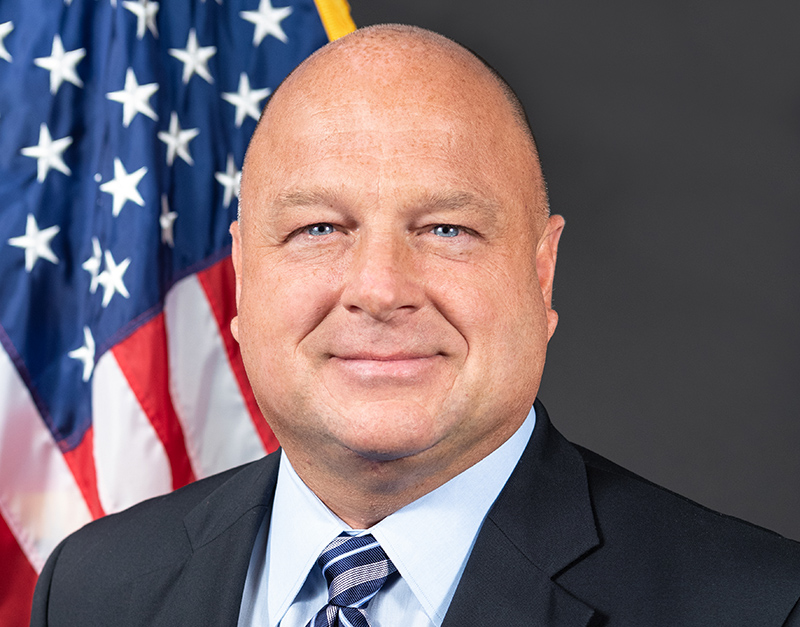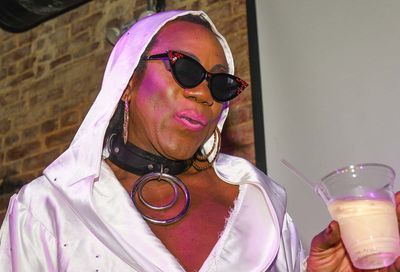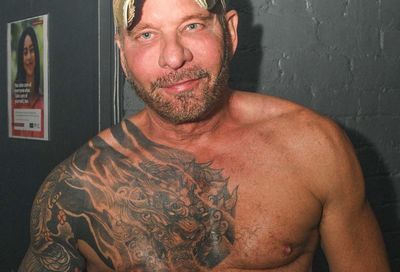The Next Vice President: Who is the Best Choice?
Who is the best person for Democratic Presidential nominee Kamala Harris to pick as her running mate? We break down the seven leading options.

Since the withdrawal of President Joe Biden from this November’s presidential contest and Kamala Harris’s meteoric rise to the Democratic Party’s nominee, it has become something of a parlor game to speculate on who will join Harris as her running mate.
To be sure, the choice is one of the most consequential that Harris will make. It will demonstrate not only who she believes is best suited to help her govern for four years, but, strategically, illustrates the types of issues her campaign wishes to emphasize and the types of voters to whom they are trying to appeal.
From an LGBTQ perspective, Harris’s selection should have a generally friendly record when it comes to issues like nondiscrimination laws, marriage equality, and transgender rights.
This may be particularly important in terms of drawing distinctions between the two major parties. Already, LGBTQ Republicans are trying to minimize those differences by noting that the official Republican Party platform does not explicitly express opposition to same-sex marriage. Despite possessing more vehemently anti-transgender planks, a platform that is agnostic on same-sex marriage may be enough to convince some cisgender gays and lesbians to side with the GOP on economic or national security issues.
Harris’s running mate should bring strengths or assets that complement her own, or that shore up potential weaknesses ahead of November’s general election. It is my goal to not so much predict whom Harris will ultimately choose, but explain what potential running mates might offer on that front, and then to offer up my final choice on who I think she should select.
I’ve ranked all the leading candidates on a 10-point scale, based on the strengths they’d bring to the ticket, their record on LGBTQ issues, their economic stances, and records of accomplishment in office.

Andy Beshear
Governor of Kentucky
Ranking: 5/10
Much like North Carolina Gov. Roy Cooper, another possible Harris running mate — who recently took himself out of contention –- Beshear has the curse of being a Democratic governor who must coexist with a Republican-dominated legislature. As such, any policy achievements are often blunted and the result of compromise, meaning he’s had to scale back or scuttle some of his campaign promises. Unlike Cooper, however, Beshear has a Democratic lieutenant governor who would assume office should he be elected, preventing the state from lurching far to the right in the immediate aftermath of the presidential election.
Like Harris, Beshear is a former attorney general who can reiterate the campaign’s theme of prosecuting the case against the Trump-Vance agenda. He has been particularly outspoken about his criticism of Vance, whom he has dismissed as a phony populist. Beshear, in particular, has balked at Vance’s characterization of Eastern Kentucky culture in the senator’s memoir Hillbilly Elegy, in which Vance proffers the idea that the hillbilly culture of Appalachia fosters social disintegration and economic insecurity.
On LGBTQ issues, Beshear has had the benefit of being able to hold himself out as a rare ally to the LBGTQ community who actually holds a position of power in Kentucky, without necessarily having had to deliver on his promises. A bill to ban conversion therapy, despite having some bipartisan support, has failed to gain traction in the ultra-conservative legislature.
Similarly, Beshear has vetoed both a transgender athlete ban and an omnibus bill that seeks to effectively erase transgender existence from law. Even though both bills were enacted after Republican lawmakers overturned Beshear’s veto, the governor gets credited for having opposed such laws, despite being ineffective at blocking them.
In terms of what he would bring to the table if asked to be Harris’s running mate, Beshear’s economic and social agenda, like the current vice president’s, would largely fall within the mainstream of the Democratic Party. Because Beshear has been able to eke out narrow victories in a state that Donald Trump won twice (and is likely to win again), he has been able to demonstrate some ability to win a certain type of rural area –- primarily those that are ancestrally Democratic and have a large labor presence. However, it’s unclear whether he could cut into the Trump-Vance campaign’s margins in such areas, despite his criticism of both men’s faux populism.
If Beshear is chosen, it’s likely he’d be used in the traditional “attack dog” role that most vice presidents end up playing in campaigns, allowing Harris to appear more magnanimous by comparison and enabling her to reach out to voters who are not die-hard Democratic partisans.

Pete Buttigieg
U.S. Secretary of Transportation
Ranking: 6/10
Telegenic, quick-witted, and silver-tongued, especially when it comes to handling “gotcha” questions posed by members of the media, Buttigieg has proven to be nimble and adept at communicating his party’s message in a manner that’s exceedingly rare for Democrats.
He’s proven himself in congressional hearings, where he routinely debunks Republican talking points, as well as on Fox News, where he is not only one of a handful of Democrats who actually make on-air appearances, but appears to be successful in pushing back on hosts’ right-wing framing of issues.
In what is largely being seen as an audition for the position of Harris’s running mate, the secretary has been traveling to swing states and has made at least 30 media appearances, including, most recently, The Daily Show with Jon Stewart.
Coming across as reasonable and measured, Buttigieg — who was the top pick of Metro Weekly readers in a recent online poll –- has become a favorite of the casual political observer, positioning himself as the rare millennial who can defend his party’s record while also being able to string two sentences together. Admittedly, it’s an easy bar to meet — which may say more about the dearth of quality Democratic messaging than it necessarily does about Buttigieg.
Undoubtedly, Buttigieg’s selection would be historic, becoming the first out LGBTQ person to appear on a major party’s ticket. But questions may linger about whether his presence might alienate straight male voters, and whether he could overcome the substantial amount of anti-LGBTQ animus that still lurks within many Americans’ hearts.
While public polling claims that most Americans are more supportive of LGBTQ rights, those numbers may be inflated by respondents who wish to appear LGBTQ-friendly and support such rights in theory but hold more hostile views on closer examination. Supporters of Buttigieg are likely to argue that, given the Democratic Party’s near-universal support for LGBTQ rights for more than a decade, Buttigieg’s gay identity alone, in a vacuum, isn’t as likely to cost Harris votes that she would otherwise receive.
On LGBTQ issues, Buttigieg’s stated positions are generally considered positive, and certainly well within the mainstream of Democratic politics. As the mayor of South Bend, Indiana, he helped pass a municipal nondiscrimination ordinance, and condemned a Mike Pence-backed bill that effectively sought to legalize discrimination against LGBTQ individuals under the guise of “religious freedom.”
His 2020 presidential platform advocated for an Equality Act-style nondiscrimination bill, a nationwide ban on conversion therapy, and programs to address disparities impacting marginalized LGBTQ people. And his Christian faith serves as a visible example of how being religious does not automatically equate to being hostile to LGBTQ existence.
Unfortunately for Buttigieg, he’s stuck in a thankless position as Transportation Secretary, the one cabinet position that the public can easily attack if flights experience delays or Amtrak has a breakdown. More importantly, Buttigieg is largely reviled by progressives for his perceived proximity to the donor class.
While his stated economic policies are generally acceptable within mainstream liberalism, Buttigieg detractors have been eager to cite his now-infamous “wine cave” fundraiser as an indication of his unwillingness to challenge the status quo when it comes to campaign finance, as well as his work for management consultant McKinsey & Company, in which he advised a company that went on to carry out massive layoffs.
A recent New York Times piece about how wealthy Democratic donors are hopeful that Buttigieg will be named to the ticket is not going to placate the concerns of the party’s more progressive members.

Mark Kelly
U.S. Senator from Arizona
Ranking: 7/10
Besides Buttigieg, Kelly, a former astronaut, naval aviator, and Gulf War veteran, is likely the most name-dropped of Harris’s potential running mates. Supporters tout the border-state senator’s independent streak and willingness to buck Democratic orthodoxy — particularly on immigration and border security — as assets that would shore up some of Harris’s perceived weaknesses on those issues.
While the Biden-Harris administration and most Democrats sought to pass a border security bill, most voters aren’t going to do even the most basic research to learn that Senate Republicans blocked the bill from receiving a vote. Therefore, Kelly supporters argue, his more conservative stances on immigration and national security can help blunt GOP attacks on Harris’s record on those issues.
Kelly, the husband of former Congresswoman Gabrielle Giffords (who survived an assassination attempt and mass shooting in 2011), has been an outspoken advocate for greater safeguards to prevent mentally ill people or criminals from being able to easily obtain guns while still respecting people’s Second Amendment rights. Some supporters argue that Kelly could “thread the needle” when it comes to arguing for reforming the nation’s gun laws without coming off to voters as hostile to gun ownership.
On LGBTQ issues specifically, Kelly is within the mainstream of the Democratic Party, voicing support for nondiscrimination laws, voting in favor of the Respect for Marriage Act to protect the validity of same-sex marriages, and decrying instances of anti-transgender violence. He also criticized anti-transgender amendments to a proposed Senate version of the annual defense funding bill, which has yet to receive a final vote in the upper chamber. Similar provisions appeared in last year’s defense funding bill, but were removed before final passage.
Expected attacks on Kelly’s record will be attempts to undercut his national security record and his stance on economic issues. Already, Fox News has attacked Kelly for co-founding a company specializing in spy balloons, which was funded, in part, by a venture capitalist in China with close ties to the Chinese Communist Party.
From an economic standpoint, Kelly won’t help Harris corral any dissatisfied members of the Democratic base due to his seeming reticence to support a bill making it easier for workers to unionize. Although he has since said he would vote for the bill, his lack of sponsorship has raised the hackles of labor leaders.
Progressives are also suspicious of his role in defeating President Biden’s nominee, David Weil, to head the Labor Department’s Wage and Hour Division, ostensibly over Weil’s criticisms of Uber and other companies relying heavily on temporary “gig workers.”
In the end, Kelly has the same weakness as Buttigieg in terms of placating the party’s base and being able to blunt Vance’s more populist posturing. Given that the head of the powerful Teamsters union effectively signaled to rank-and-file union members, through his speaking at the Republican National Convention, that a vote for Donald Trump isn’t a deal-breaker, it seems odd to send the message to a historically core Democratic constituency that their issues will be deprioritized or given short-shrift in a future administration.

J.B. Pritzker
Governor of Illinois
Ranking: 7/10
The two most obvious criticisms of Pritzker are that he’s a billionaire from one of the wealthiest and politically-connected families in the United States and he’s from Illinois, a state that — fairly or unfairly –- has a reputation for political corruption, with politicians from both major parties being implicated in scandal. While former President Barack Obama was largely able to insulate himself from the kind of attacks that will be deployed against Pritzker, it’s unclear whether the governor will be able to forge a similar path.
Pritzker’s accomplishments in office (albeit with the benefit of having a Democratic-led legislature) actually should make him a frontrunner as a potential running mate, with the most obvious attacks against him dismissed as “red meat” for Republican base voters who are never going to cast a vote for a Democratic presidential candidate.
On LGBTQ issues, Pritzker has been a dream governor, signing an executive order to create a task force specifically addressing issues affecting transgender students in schools. He signed a bill requiring LGBTQ historical figures to be included in public school curricula, another that repealed state laws criminalizing HIV, and another that makes Illinois a “sanctuary state” for couples seeking in vitro fertilization services, which are at risk of being criminalized under anti-abortion statutes in at least 13 other states.
He also signed bills expanding coverage for infertility treatments for same-sex couples and women over 35, allowing people getting married to obtain gender-neutral marriage certificates, and prohibiting discrimination against LGBTQ jurors.
On economic issues, Pritzker is unlikely to endear himself to progressives, not just due to his past financial support to pro-Hillary Clinton political action committees — not to mention serving as a fundraiser and adviser to her 2016 White House bid –- but because some of his economic policies won’t be viewed as going far enough.
He will get credit for pushing through more populist priorities in his most recent budget, such as a child tax credit for low- and middle-income families with children under 12, and the repeal of the state’s 1% grocery tax, but will still largely be cast by the Bernie Sanders wing of the Democratic Party as too corporate-friendly and unwilling to pursue large-scale economic reforms.
Billing himself as a “pragmatic progressive,” Pritzker has successfully advocated for, and signed bills to implement, the legalization of recreational marijuana, the raising of the state’s minimum wage law, the elimination of cash bail, and passage of a law that protects access to abortion in the wake of the Supreme Court’s 2022 decision overturning Roe v. Wade.
Like Beshear, Pritzker, who has already shown an ability to get under Donald Trump’s skin with some of his own insulting social media posts, would likely be deployed as an “attack dog,” highlighting Trump and Vance’s political liabilities while also appealing to Democratic coalition voters in the broadest terms, emphasizing issues on which all Democrats largely agree while avoiding more contentious policies that threaten to split the party’s base.

Josh Shapiro
Governor of Pennsylvania
Ranking: 7/10
Shapiro, like Harris, is a former Attorney General who cultivated a consumer-friendly and even semi-populist reputation for his work in that office, cracking down on payday lenders, seeking to end state pension funds’ reliance on Wall Street money managers, and negotiating $1 billion for Pennsylvania as part of a larger settlement reached with major pharmaceutical distributors for their alleged role in fueling the opioid epidemic.
Shapiro’s selection would bolster a narrative that Harris has sought to paint of herself as a former prosecutor who has taken on powerful people and interests, in contrast to former President and Republican nominee Donald Trump’s recent legal troubles. His executive experience running a large state is an asset he could rely on when advising Harris in carrying out her own political agenda should she win the upcoming election.
On LGBTQ issues specifically, Shapiro has generally been a friend and ally to members of the community. During his stint in the Pennsylvania House of Representatives, he co-sponsored legislation to prohibit anti-LGBTQ discrimination in housing, employment, and other aspects of life.
In 2013, as the chair of the Montgomery County (Pa.) Board of Commissioners, he used his authority to issue marriage licenses to same-sex couples, even though doing so ran counter to state law at the time. As Attorney General, he signed onto a number of amicus briefs in lawsuits dealing with LGBTQ rights, often opposing actions taken by the Trump administration. As governor, he has advocated for passage of LGBTQ-inclusive nondiscrimination laws and has supported a bill to repeal the existing, yet now defunct, state statute outlawing same-sex marriages.
The only thing stopping Shapiro from having one of the strongest records of any governor on LGBTQ rights is the fact that Pennsylvania’s State Senate is controlled by Republicans, effectively dooming the chances of any pro-LGBTQ legislation from passing.
Shapiro is largely untested on the national stage. It’s unclear whether his personal performance in past elections, and relatively positive approval ratings, would be transferable to Harris.
While he has been praised for pushing through legislation that expands voting access, lowers taxes on seniors, increases public school funding, and provides universal school breakfasts, he has annoyed some labor leaders by backing school vouchers, in which taxpayer money is funneled to private, often-religiously affiliated schools. His pro-fracking position is likely to rankle environmental activists.
Shapiro, who is Jewish, has been one of the most vocal critics of left-wing activists demanding a ceasefire in Gaza. Beyond the question of whether some latent anti-Semitism among voters might cost a Harris-Shapiro ticket the White House, Shapiro’s positions on the Hamas-Israeli war are barely distinguishable from those of Joe Biden, whose presence on the ballot was protested by significant numbers of Democratic-leaning voters who wrote in “ceasefire” or voted “uncommitted” during the Democratic primaries.
The left-leaning publication Slate has noted that, unlike Illinois Gov. J.B. Pritzker, who is also Jewish, Shapiro has been unable to thread the needle between condemning incidents of anti-Semitism and attacking all anti-war protesters or ceasefire supporters as bigots and anti-Semites.
As David Klion wrote for The New Republic, the way that Shapiro has attacked anti-war demonstrators, as well as his championing of a “constitutionally dubious” anti-BDS [Boycott, Divestment, Sanctions] law in Pennsylvania, calls into question his commitment to defending First Amendment rights. Electorally, his presence on the ticket could lead some anti-war activists or Muslim voters to refrain from supporting Harris in November, potentially tipping some vulnerable swing states to Donald Trump.

Tim Walz
Governor of Minnesota
Ranking: 9/10
Walz provides the perfect example of how a Democratic governor of a swing state, working in conjunction with a Democratic-led legislature, can push through a wishlist of progressive social and economic policies.
On the social front, he signed laws protecting access to reproductive health care services, legalizing recreational marijuana, and signing a so-called “red flag” law, along with expanded background checks, to make it harder for mentally-disturbed individuals and people with criminal records to obtain guns.
Walz signed a law making Minnesota a “safe haven” for transgender youths who seek out gender-affirming care. He also approved a law prohibiting public libraries from removing books from shelves simply due to objections about their content, including books with LGBTQ themes or characters.
On the economic front, Walz is a left-leaning populist, having championed, and signed into law, bills expanding paid family leave, expanding child care support programs, providing universal school meals for students, banning most non-compete agreements, and giving out one-time rebate checks of up to $1,300 to some state residents after the state recorded a budget surplus.
He also signed legislation to cap the price of insulin in the state, three years prior to President Biden signing a similar national law into effect. Picking someone like Walz would help Harris — whose policies are “progressive” on social issues but not economic ones — to shore up her left flank.
Electorally, Walz, a former public school social studies teacher and football coach who spent 24 years in the Army National Guard, being deployed domestically and overseas, would not only bring executive governing experience to the table, but legislative experience from his 12 years serving in Congress, where he represented a rural, Republican-leaning district.
He has experience dealing with rural issues and can potentially appeal to the types of blue-collar and working-class voters the Democrats will need to sway to their side. These voters often have an outsized influence on the outcomes of elections in swing states like Minnesota, Wisconsin, Michigan, and Pennsylvania.
Walz’s plainspokenness and folksy appeal don’t come off as contrived, and he smoothly deflects “gotcha” questions from the media. He offers honest, straightforward answers to questions, rather than falling into the trap, as many Democrats do, of sounding like he’s trying out for the president of the Princeton debating society.
Walz’s one obvious weakness will be his response to the unrest and riots that took place in Minneapolis following the killing of George Floyd by a former Minneapolis police officer. Walz has previously admitted that not deploying the National Guard sooner was an error on his part, which could have stemmed some of the rioting and looting that took place in the days after Floyd’s death.
Walz’s best asset is his refusal to flee from his record. In response to CNN’s Jake Tapper seeking to paint Walz as some unhinged radical who is “too left-wing” to be picked by Harris, Walz mocked the question, saying of his policy achievements, “What a monster! Kids are eating and having full bellies so they can go learn.”
It was also Walz who trumpeted the Democrats’ current messaging that brands Republican presidential and vice presidential nominees as “weird” and obsessed with culture-war, pro-natalist, and anti-freedom policies that don’t resonate with average Americans or change their lives for the better. He’s proven himself a capable messenger for the Democratic cause, and won’t make the mistake of apologizing for valid political beliefs.

Gretchen Whitmer
Governor of Michigan
Ranking: 9/10
Besides her previously stated desire not to seek the vice presidency, Whitmer’s biggest liability would, quite frankly, be her gender, as some Democrats fear that Americans just aren’t ready to embrace an all-female ticket. Still, Whitmer’s selection would be a doubling down on Democratic strengths, playing to the party’s base and seeking to corral Democratic-leaning female voters into the “blue” camp ahead of November.
On LGBTQ issues, Whitmer, who has been hailed as a rising star in the Democratic Party, has been as welcoming and tolerant as any potential running mate. As governor, she established a commission on LGBTQ rights, outlawed conversion therapy on minors, signed legislation prohibiting anti-LGBTQ discrimination in employment, housing, education and public accommodations, and successfully pushed for the outlawing of the gay and trans “panic” defense in cases where a defendant has brutally killed or injured an LGBTQ victim.
Economically, especially since Democrats won back control of the legislature in the 2022 elections, Whitmer and her fellow party members have rolled back the state’s retirement tax, expanded the state’s earned income tax credit, passed clean energy policies with an eye toward making the state a lead manufacturer of electric cars, semiconductor chips, and other technologies, and sent out rebate checks to Michigan taxpayers. Whitmer has also called for increasing housing stock, proposed creating a board to address prescription drug affordability, and advocated for (though it failed to pass) paid family and medical leave.
By selecting Whitmer as her running mate, Harris would provide Democrats with a historic ticket that left-leaning voters could get excited about. While Whitmer isn’t as staunch a progressive as some would like to see, her economic agenda places her in the more pro-worker, populist lane when compared to Harris.
Whitmer is also less of an “attack dog,” largely coming across as congenial, warm, and relatable, and would largely be tasked with persuading voters reticent about backing Harris to pull the lever for the Democratic ticket. In essence, she would likely be a much-praised pick who wouldn’t be a detriment to the ticket, but would be an out-of-the-box pick for the political class, who largely expect Harris to pick a white, male running mate.
My Pick: Walz
If you’re looking to shore up the Democratic base, placate progressives (at least as much as possible, though some will never be satisfied), and find a running mate who has demonstrated his ability to win in a swing state, Walz should be the preferred pick.
Walz’s unapologetic embrace of his record, and the Democratic Party’s core values, should be enough to rally Democrats and Democratic-leaning independents, like those who cast votes for Biden four years ago, to participate in November’s election, resulting in higher turnout overall.
His refusal to allow online trolls, Republican pundits, or members of the media to bully him into apologizing for, or delegitimizing, opinions held and policies supported by millions of Americans would be refreshing for a party that, historically, has lacked backbone. Regardless of November’s outcome, Walz offers liberals and leftists a simple lesson — one that Republicans learned long ago: Don’t flee from who you are. Be proud.
John Riley is Metro Weekly’s Senior Editor. Follow him on X at @jrileymw.
Keep up with the latest LGBTQ political news. Sign up for our newsletter at www.metroweekly.com/subscribe.
Support Metro Weekly’s Journalism
These are challenging times for news organizations. And yet it’s crucial we stay active and provide vital resources and information to both our local readers and the world. So won’t you please take a moment and consider supporting Metro Weekly with a membership? For as little as $5 a month, you can help ensure Metro Weekly magazine and MetroWeekly.com remain free, viable resources as we provide the best, most diverse, culturally-resonant LGBTQ coverage in both the D.C. region and around the world. Memberships come with exclusive perks and discounts, your own personal digital delivery of each week’s magazine (and an archive), access to our Member's Lounge when it launches this fall, and exclusive members-only items like Metro Weekly Membership Mugs and Tote Bags! Check out all our membership levels here and please join us today!




























You must be logged in to post a comment.